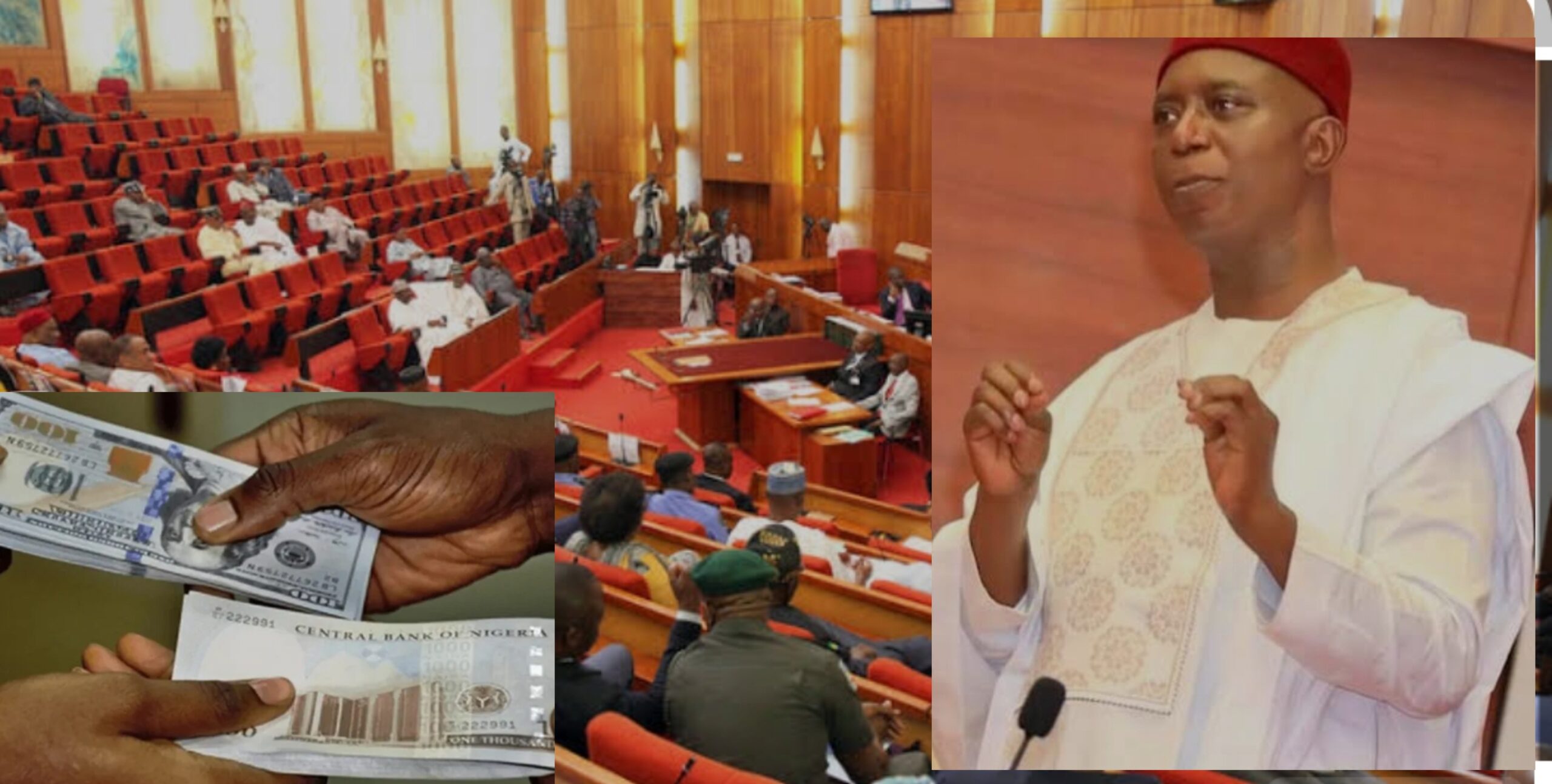… Senator Ned Nwoko’s groundbreaking bill seeks to restore Nigeria’s monetary sovereignty, strengthen the Naira, and foster economic independence.
Prohibition of Foreign Currency Use in Nigeria: Senate Bill Scales First Reading
The Senate has introduced a bill to prohibit foreign currency transactions in Nigeria, ensuring salaries, payments, and exports are conducted in Naira. Sponsored by Senator Ned Nwoko, the legislation aims to boost the local currency’s value and foster economic independence.

The Nigerian Senate has taken a decisive step toward restoring the country’s monetary sovereignty by passing the first reading of a bill that seeks to prohibit the use of foreign currencies for payments and transactions within Nigeria. The bill, titled “A Bill for an Act to Alter the Central Bank of Nigeria Act, 2007, No. 7, to Prohibit the Use of Foreign Currencies for Remuneration and for Other Related Matters,” is sponsored by Senator Ned Munir Nwoko, Chairman of the Senate Committee on Reparations and Repatriation.
Key Objectives of the Bill in the Senate
Mandatory Use of Naira: All payments, including salaries and transactions, must be conducted in Naira, ensuring fairness and fostering trust in the local currency. This includes expatriates working in Nigeria.
Exports in Naira: Crude oil and other exports are to be sold exclusively in Naira, compelling international buyers to purchase the currency, thereby increasing its demand and value.
Elimination of Informal Currency Markets: The bill aims to abolish informal currency markets that promote unethical practices like round-tripping by banks.
Accessible Credit Facilities: Banks will be mandated to provide loans at affordable interest rates, spurring industrialization and economic growth.
Domestic Foreign Reserves: Nigeria’s foreign reserves will be stored locally to safeguard economic sovereignty and minimize exposure to external risks.
Rationale Behind the Bill
According to Senator Nwoko who is the presenter of the bill to the senate, the prevalent use of foreign currencies, such as the Dollar and Pound Sterling, in Nigeria’s financial system undermines the Naira, perpetuating economic challenges. He described this practice as a colonial relic that continues to hinder Nigeria’s economic independence. “Governments before us dreamt of making the Naira the pride of our nation, but now is the time to act decisively,” he remarked.
He also highlighted to the senate how other countries, such as Morocco, have successfully anchored their economies on their local currencies. “The Moroccan Dirham has maintained stability against major currencies for over 35 years because it is exclusively used for all transactions within Morocco. Nigeria, with its abundant resources and vibrant population, can achieve even greater results,” Senator Nwoko said.

Transition Plans
Senator Nwoko assured Nigerians that the transition from foreign currencies to the Naira would be smooth. He clarified that converting domiciliary account balances into Naira would be a voluntary process. Additionally, access to foreign exchange for legitimate purposes, such as travel, would be streamlined through banking reforms, easing concerns over Basic Travel Allowance (BTA) and other forex needs.
Broader Impacts
The bill envisions a future where:
The Naira becomes the sole medium of exchange for both domestic and international transactions, boosting its value.
Nigerian banks expand internationally, offering innovative financial tools, such as cashless wallets, to facilitate global transactions.
The manufacturing sector thrives through affordable credit facilities, reducing dependency on imports and fostering local production.
National pride and economic self-reliance are promoted by reducing dependence on foreign currencies.
If passed, this legislation could usher in a transformative era, driving economic growth, sustainable development, and cultural pride anchored in the strength of Nigeria’s currency.
Follow Globaltrust.ng for more stories.





